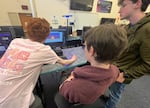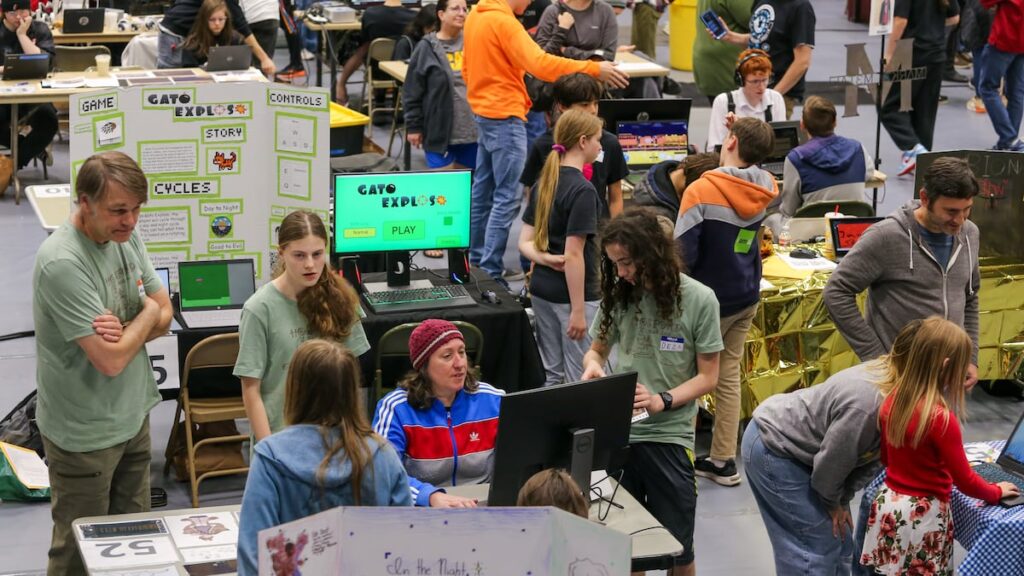
The Oregon Game Project Challenge, to be held on May 18, 2024, will see students pitch their video games to a panel of judges in a science fair-like format. The competition is open to middle and high school students in Oregon.
Courtesy of Oregon Game Project Challenge
According to the Pew Research Center, 85% of American teenagers play video games. But many of these young people probably don't make the games themselves.
The Oregon Game Project Challenge gives them a chance to do just that: It's an annual competition for middle and high school students in Oregon that has been turning gamers into video game creators since 2007. Participating teams are given a theme in the fall and work across the school year to create their own game, using everything from coding to art design to sound.
OGPC Director Andrew Scholer said demand for the competition has grown each year, from about 20 teams when it began to nearly 90 teams and nearly 300 participants in the 2023-2024 school year.
“We think we have something that works really well,” Scholer said. “Our biggest concern right now is capacity. This year we were limited in the number of teams we could invite because of the space we had available.”

Century High School's Toast Lad team has won top prizes at the past two Oregon Game Project Challenge competitions.
Courtesy of Oregon Game Project Challenge
Jason Pelkey is a senior at Century High School in Hillsboro and the Toast Lads' team leader, and in May the team won top honors for the second year in a row.
He said he felt stuck with games like Minecraft and wanted to explore game concepts he wanted to play instead.
“I wanted to make my own games so I could freely explore my imagination,” he says. “I had so many ideas in my head, and the idea of being able to make and play them myself sounded like a lot of fun.”
Toast Lads' winning game is called MARK3T M3TAL and is described as a mix of survival games like Raft and Don't Starve Together, but set on a moving train – something Pelkey was keen to work on. “The idea of having a mobile base is a very novel concept to me, and I think trains are the best because you can add carts to them and, unlike ships, they provide a pretty stable base to add stuff to,” he said.

The top prize went to Toast Lads, a team from Century High School. Called MARK3T M3TAL, the game involves collecting resources, upgrading your base and battling enemies.
Courtesy of Oregon Game Project Challenge
But working in the games industry can be risky: This year alone, more than 10,000 people involved in video game production have lost their jobs. Scholar The industry is currently facing big challenges, but OGPC's role isn't to generate more developers, but to help develop community and leadership, he says.
“The technical, project management and teamwork skills they are gaining on these projects will hopefully be transferable to some aspect of their work,” he said.

Three members of Century High School's Toast Lads team are working on the game MARK3T M3TAL.
Courtesy of Jason Pelkey
Pelkey is leaving the door open to future game development opportunities, especially lucrative ones.
“I'm interested in cybersecurity,” he says, “but I think it would be a fun side hustle, and I've heard stories of people doing it as a side hustle and eventually becoming rich.”
Andrew Scholer and Jason Pelkey joined OPB's “Think Out Loud” to discuss the Oregon Game Project Challenge. You can listen to the full conversation here.


